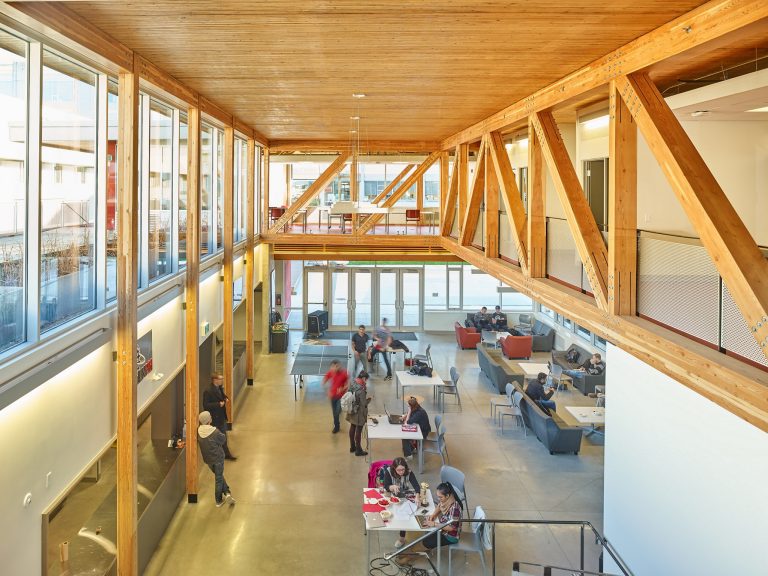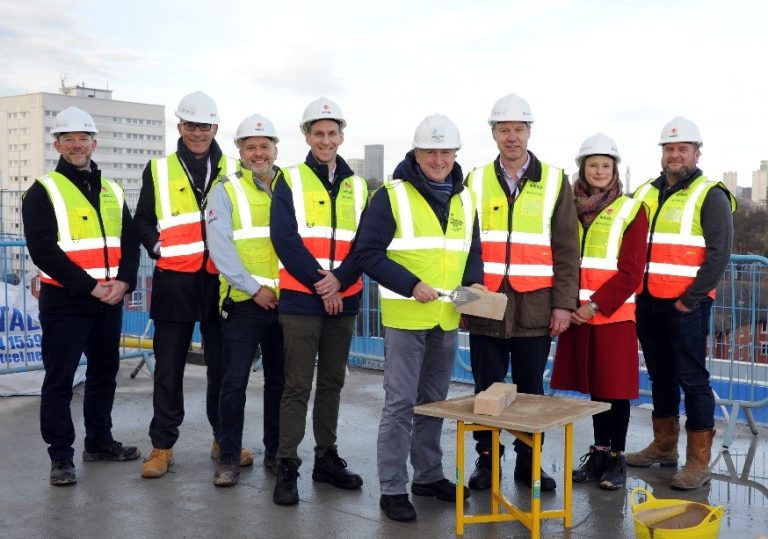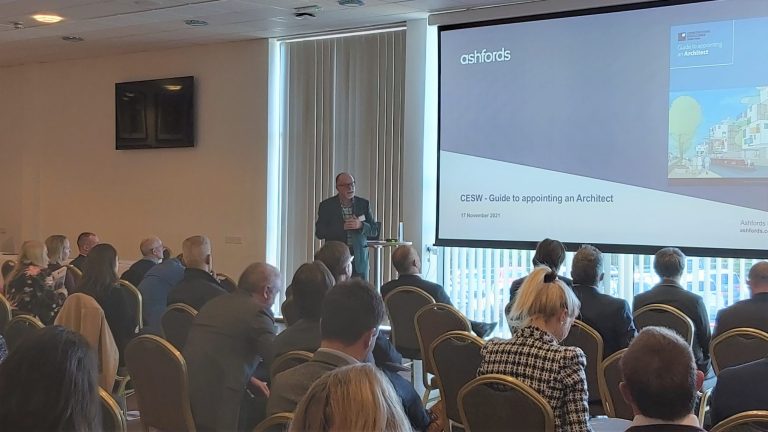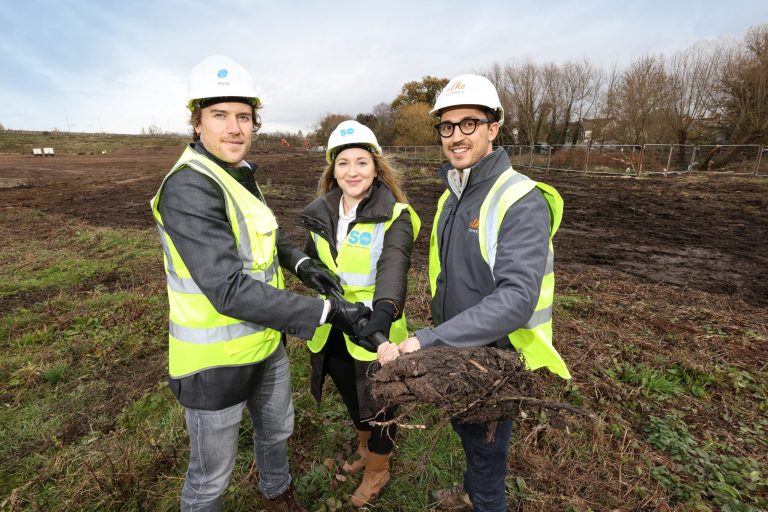Birmingham City Council Leader Lays Brick on Fifth Floor Roof Winvic Construction Ltd, a leading main contractor that specialises in the design and delivery of multi-sector construction and civil engineering projects, and client PATRIZIA have celebrated topping out of the first roof at a build-to-rent (BTR) scheme in Edgbaston, as well as the commencement of the façade installation programme. Councillor Ian Ward, Leader of Birmingham City Council, was invited to the celebratory ceremony at the site located adjacent to Edgbaston Stadium on Thursday, 9 December and had the honour of laying a brick on the fifth-floor roof. The 375-apartment scheme – which Winvic began constructing in February this year – comprises four concrete-framed stair and lift cores, with blocks reaching to five, six, seven, eight, 13 and 18 storeys. Furthermore, undercroft car parking and bicycle storage, a landscaped podium deck, a residents’ rooftop terrace, a gym and five commercial units on the ground floor, totalling approximately 15,000 sq ft, will be created as part of the project. Winvic’s contract also includes the full fit out of the development, which contains 189 one-bedroom, 169 two-bedroom and 17 three-bedroom apartments. The Winvic team is currently ahead of schedule and is almost halfway through the programme for pouring the concrete verticals and floor slabs. The façade installation programme comprising a steel framing system (SFS), masonry and windows has now commenced and will continue through to Q4 2023. Fit out to the entrance, ground floor plant, amenity and storage areas begins in the New Year and Winvic will be fitting out the apartments from Spring 2022. At the end of January 2022, the drainage and incoming utility services works will be complete. Lighting installation and landscaping works, with circa almost 3,000 trees and shrubs planted, will begin towards the end of 2022. Progress at PATRIZIA’s Edgbaston scheme can be viewed on Winvic Live on two on-site cameras. Winvic is scheduled to hand over the project in Q3 2023. Mark Jones, Director of Multi-room at Winvic, commented: “PATRIZIA was a new client to Winvic at the start of this year but our aligned vision and focus on the end goal has facilitated an excellent working relationship and reaching this important project milestone is something to be celebrated. I’d like to also thank Councillor Ian Ward for coming along to lay a brick to commemorate the start of the face installation works and the topping out of phase 1. The team has been working hard throughout 2021 on this scheme and we’re on schedule for handover in Q3 2023; they deserve to have a relaxing Christmas break and I know they are looking forward to continuing with the façade programme in January.” Richard Scutt, Development Director at PATRIZIA said: “Birmingham has one of the largest private rental sectors outside London and PATRIZIA is at the forefront of delivering homes for this growing community. This topping out of phase one is an occasion to celebrate and our construction partner Winvic is doing an incredible job in delivering the scheme swiftly and safely as well as providing assistance with obtaining the sustainable and wellbeing certifications. We are prioritising wellness of residents within the design by targeting Fitwel certification, an international standard of rating wellbeing in a building. The building will also achieve a Homes Quality Mark certification, making it one of the first BTR developments to obtain this accreditation, attesting to high standards of build, running costs, health and wellbeing, and sustainability.” Leader of Birmingham City Council, Councillor Ian Ward, said: “This exciting new development brings city centre standard accommodation to Edgbaston, creating a new rental hub and offering a real alternative for those looking for greener, leafier space. It caters for Birmingham’s wider demographic that wish to live in a high-end apartment close to the city, yet in the beautiful setting of Edgbaston and next to Cannon Hill Park.” Alongside delivery of PATRIZIA’s scheme, Winvic is undertaking improvement works for Warwickshire County Cricket Club (WCCC) at Edgbaston Stadium. To date, completed works include the demolition of a derelict building and Winvic’s contracted S278 works at Edgbaston Road and Pershore Road. Winvic is continuing with the construction of a 56,500 sq ft entrance plaza, reconfiguration of the existing car park and the creation 229 new car parking spaces into next year. Phase 1 of the WCCC works was completed in March 2021 and phase 2 is on track for handover in March 2022, in readiness for the Birmingham 2022 Commonwealth Games. For more information on Winvic, the company’s latest project news and job vacancies please visit www.winvic.co.uk. Join Winvic on social media – visit Twitter @WinvicLtd – and LinkedIn.














